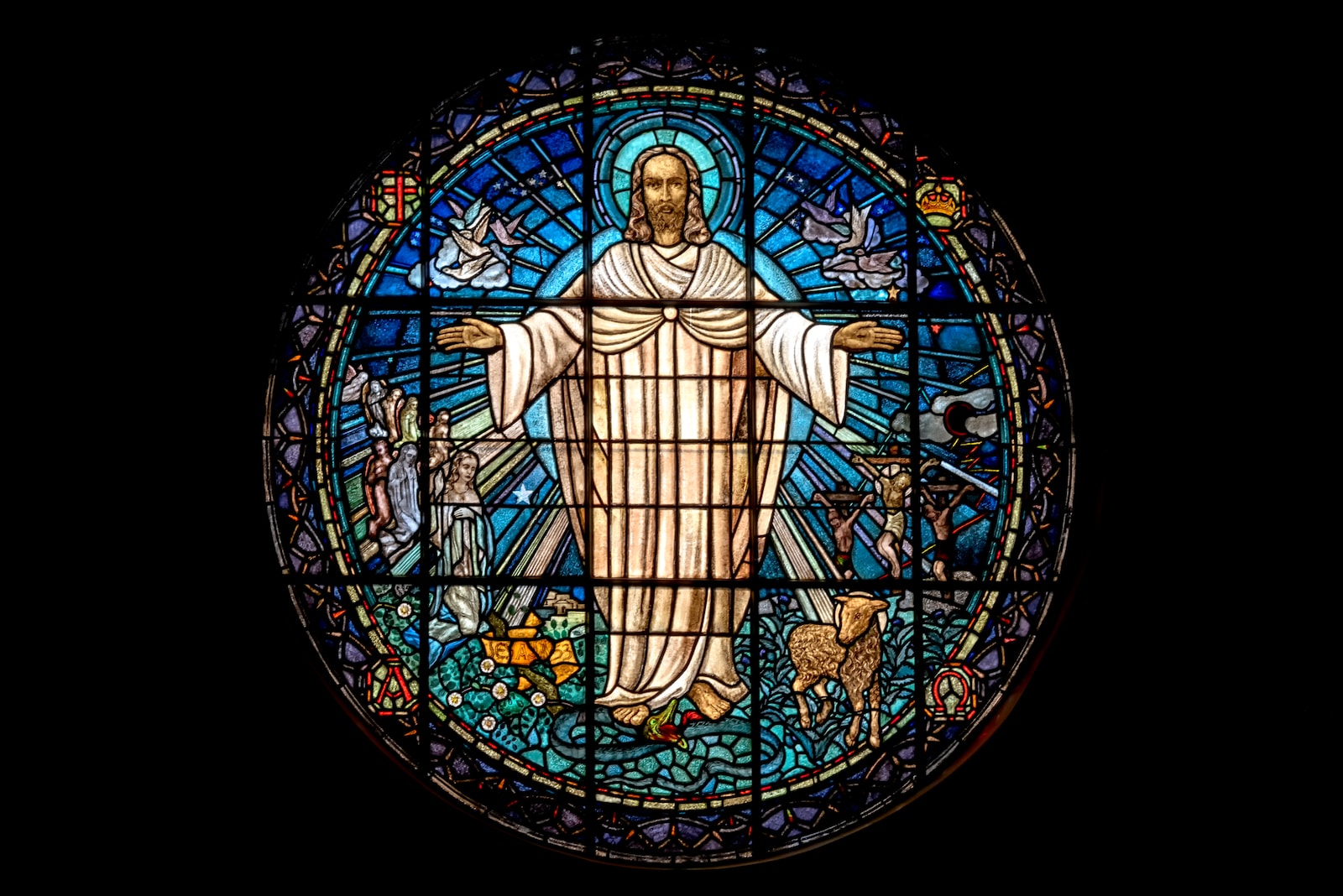Isaiah Chapter 17: Divine Message and the Anticipation of Redemption within the Messianic Context
Overview of Isaiah Chapter 17
Isaiah Chapter 17 delivers a profound divine message regarding the impending destruction and judgment upon Syria and Israel.The chapter begins with a prophecy concerning the ruin of Damascus, the capital of Syria, which will be completely reduced to rubble. This prophecy was later fulfilled when the Assyrians conquered the city in 732 BC. The once glorious city became a desolate heap, serving as a stark reminder of God’s judgment upon the nation.The chapter then shifts its focus to Israel, specifically the diminishing glory of Jacob. The strong cities of Israel will be forsaken and left in ruins, as a result of their idolatrous practices. The consequences of forsaking God and turning to false gods are made clear in this chapter. The chapter also highlights the role of other nations, such as Assyria, in bringing judgment against Syria and Israel.
An example that illustrates the divine message within Isaiah Chapter 17 can be seen in the prophecy of the destruction of Damascus. This prophecy was fulfilled when the Assyrians conquered the city in 732 BC. The once glorious capital of Syria was reduced to rubble, serving as a testament to God’s judgment upon the nation. Through this prophecy, Isaiah conveys the message that no nation, no matter how powerful or prosperous, is exempt from God’s judgment if they turn away from Him. The destruction of Damascus serves as a warning to Israel and other nations of the consequences of forsaking God and engaging in idolatry.
Analysis of the Divine Message within Isaiah Chapter 17
Isaiah Chapter 17 delivers a message of divine judgment and the consequences of forsaking God. The chapter emphasizes the sovereignty of God and His role in bringing about judgment and preservation. The strong cities of Syria and Israel will be brought to ruin as a result of their idolatry and disobedience. The diminishing glory of Jacob symbolizes the decline and vulnerability of the Israelite nation as a whole. However, amidst the judgment, a remnant of Israel will be preserved and protected by God. This serves as a reminder of God’s faithfulness and His commitment to His covenant with His people. The chapter also foretells the defeat of the Assyrian army before Jerusalem, highlighting God’s power and intervention in the affairs of nations.
Another aspect of the divine message in Isaiah Chapter 17 is the consequences of forsaking God and turning to idols. Idolatry was prevalent among the people of Syria and Israel, and this idolatrous behavior led to their downfall and the destruction of their cities. The judgment acts as a catalyst for people to turn back to God and forsake their idols. The consequences of judgment reveal the futility of human efforts and highlight the sovereignty of God. It serves as a reminder that no matter how powerful or secure cities may seem, they are ultimately subject to the judgment of God if they abandon their devotion to Him.
#Isaiah17 #DivineMessage #Redemption #JesusChrist #MessianicContext #PropheticReflection #BiblicalProphecy #TrustinGodsPlan #AssuranceofDivineDeliverance #SpiritualRenewal #ContextofProphecy #HopeAmidstRedemption
Anticipation of Redemption in the Messianic Context
Isaiah Chapter 17, like the rest of the book of Isaiah, is set within the Messianic context. It introduces the theme of a future ruler from the family of David who will bring restoration, peace, and the fulfillment of God’s promises [2].This promised king, often referred to as the Messiah, is expected to provide a solution to the threats faced by Israel and bring about a renewal of creation. While Hezekiah, the king of Judah during Isaiah’s time, is presented as a potential fulfillment of this promise, Jesus is ultimately seen as the faithful king who fulfills the ancient prophecies.
The anticipation of redemption within the Messianic context is evident in Isaiah Chapter 17 through the mention of the remnant that will be preserved amidst the destruction. This remnant represents the faithful few who will be saved by God and experience His redemption. The preservation of the remnant serves as a foreshadowing of the ultimate redemption that will come through the Messiah. Jesus, as the fulfillment of the Messianic hope, brings about the restoration and redemption of God’s people through His sacrificial death and resurrection. Isaiah Chapter 17, therefore, points to the ultimate fulfillment of God’s promises in Jesus Christ.
An example that illustrates the anticipation of redemption within the Messianic context can be seen in the promise of God’s protection for a remnant of His people amidst the destruction. This promise assures the faithful few that God will not abandon them completely but will preserve them and fulfill His covenant with them. This anticipation of redemption is further emphasized in the overarching theme of the book of Isaiah, which points towards the coming of the Messiah who will bring about the ultimate redemption and restoration of God’s people. The Messianic hope, rooted in Isaiah Chapter 17 and throughout the book of Isaiah, finds its fulfillment in Jesus Christ, who brings salvation and eternal life to all who believe in Him.
Key Themes and Symbolism in Isaiah Chapter 17
Isaiah Chapter 17 contains key themes and symbolism that contribute to the overall message of the chapter. One prominent theme is the diminishing glory of Jacob, which symbolizes the decline and vulnerability of the Israelite nation. This symbolizes the consequences of turning away from God and abandoning His ways. The imagery of gleaning grapes left in the land represents the desolation and devastation brought about by judgment. Just as only a few grapes are left after the harvest, the land will be left desolate and barren. The abandonment of strong cities symbolizes the loss of security and protection. The once powerful cities of Syria and Israel will be forsaken and left defenseless. The ruined harvest serves as a visual representation of the consequences of judgment. The crops that were planted and grown will be ruined and become useless.
The Destruction of Damascus and Israel: Historical and Prophetic Significance
The prophecy of doom upon Syria and Israel in Isaiah Chapter 17 is fulfilled through the destruction of Damascus and the strong cities of Israel. The Assyrian invasion, particularly during the reign of Ahaz, brings about the downfall of these regions. The historical events serve as a prophetic sign of God’s judgment and the ultimate redemption of His people. The preservation of a remnant amidst the destruction highlights God’s protective power. Despite the devastating judgment, God ensures that a remnant of His people will survive. This preservation serves as a sign of hope and a reminder of God’s faithfulness to His covenant.
The Role of Idolatry and Judgment in Isaiah Chapter 17
Idolatry is prevalent among the people of Syria and Israel in Isaiah Chapter 17, but judgment leads to its abandonment. The judgment acts as a catalyst for people to turn back to God and forsake their idols. The consequences of judgment reveal the futility of human efforts and highlight the sovereignty of God. It serves as a reminder that no matter how powerful or secure cities may seem, they are ultimately subject to the judgment of God if they abandon their devotion to Him.
The Messianic Hope in Isaiah Chapter 17 and Beyond
Isaiah Chapter 17 contributes to the Messianic hope by presenting the anticipation of a future ruler from the family of David. This promised king is expected to bring restoration, peace, and the fulfillment of God’s promises. While Hezekiah falls short of fulfilling this role, Jesus is seen as the ultimate fulfillment of the Messianic hope. Jesus, as the faithful king from the line of David, fulfills the ancient promises and surprises many people with His fulfillment of these prophecies. The exploration of Jesus’ fulfillment of these prophecies is the focus of Isaiah 40-66.
Symbolism and Imagery in Isaiah Chapter 17
Isaiah Chapter 17 utilizes symbolism and imagery to convey its message. The diminishing glory of Jacob symbolizes the decline and vulnerability of the Israelite nation. The imagery of gleaning grapes left in the land represents the desolation and devastation brought about by judgment. The abandonment of strong cities symbolizes the loss of security and protection. The ruined harvest serves as a visual representation of the consequences of judgment. These symbols and imagery are employed to paint a vivid picture of the devastating judgment that awaits those who turn away from God.
Isaiah Chapter 17 in the Context of the Book of Isaiah
Isaiah Chapter 17 is part of a larger narrative that addresses the scattering and gathering of Israel. The chapter also contains prophecies about the destruction of various nations and the future Davidic king, the Messiah. It connects to the eventual destruction of Jerusalem by the Babylonian army, which is a major theme in the book of Isaiah. The book of Isaiah as a whole emphasizes God’s judgment, the consequences of forsaking Him, and the ultimate hope of redemption through the Messiah. Isaiah Chapter 17 contributes to this narrative by highlighting the divine message of judgment and the anticipation of redemption within the Messianic context.
Conclusion
Isaiah Chapter 17 holds significant theological and prophetic importance within the book of Isaiah. It conveys a divine message of judgment, abandonment of idolatry, and the anticipation of redemption within the Messianic context. The chapter’s themes and symbolism contribute to the overall narrative of Isaiah, highlighting the sovereignty of God and His plan for the salvation of His people. The anticipation of the coming Messiah is realized in Jesus Christ, who fulfills the ancient promises and brings about the ultimate redemption and restoration of God’s people. Isaiah Chapter 17 serves as a powerful reminder of the consequences of forsaking God and the hope of redemption through the promised Messiah.


